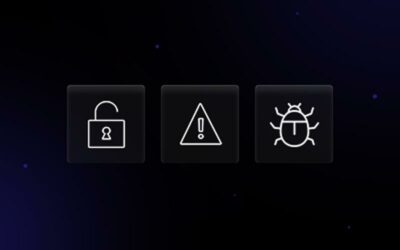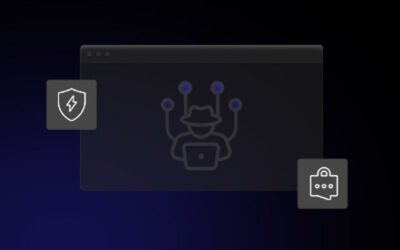Everyone knows that students’ lives are full of stress. When talking about students’ problems, however, most people only mention massive workloads and tight schedules, along with high tuition costs. The truth is that numerous assignments and strict deadlines are big problems for students, but many of them have learned how to deal with such difficulties. For example, many students order custom papers online. Although there are different opinions on whether or not writing services are legit and reliable, they at least offer some sort of a solution.
However, there are some problems students are less aware of. For example, students are seven times more likely to become victims of identity theft than others. Some people might be surprised by such statistics because students don’t have much money, but identity theft is not only about money. Hackers may want to steal a student’s name and reputation to create a fake persona. This way, scammers who have no credit can start from scratch. Identity theft is a very common crime, and it makes Americans lose hundreds of millions of dollars per year.
Therefore, students should be aware of the risks of identity theft and be able to protect themselves online. Before we consider reasons why students are at risk in more detail, let’s clarify what identity theft is.
WHAT IS IDENTITY THEFT?
Identity theft is a common type of cybercrime that involves stealing personal information and using it to commit other criminal acts, including different types of fraud. For example, identity thieves look for personal information to get access to other people’s bank accounts, apply for loans, open credit cards, claim other people’s tax returns, or buy property.
If you become a victim of identity theft, you can lose money from your bank accounts or become a target for debt collectors because of a debt that has nothing to do with you. You can also be unable to access your bank accounts and credit cards, or even be arrested for crimes that you didn’t commit. Some victims of identity theft cannot receive proper medical services because of corrupted medical records or stolen insurance. Obviously, identity thieves can also destroy your credit rating, which in turn can lead to many other negative consequences.
Victims of identity theft may not be aware of the problem for a while. For example, some people end up having a huge amount of debt and don’t even know about it until they fail to get a loan or job. People may spend years repairing credit damage, and such a situation can be critical for college graduates who just enter their adult lives. There’s nothing worse than having your credit ruined from the very beginning by somebody else. While dealing with the consequences of identity theft is a very difficult task, students can still prevent such incidents by protecting their personal data. Hackers won’t be able to steal your identity if they don’t get the necessary information. Here are some reasons why students’ personal data can be stolen.
REASONS WHY STUDENTS BECOME VICTIMS OF IDENTITY THEFT
1) Students often don’t monitor their bank accounts
Identity thieves often access bank account information, such as account statements and checking information. If you don’t monitor your account activity, you can become an easy target for scammers. Many thieves don’t steal a lot of money at once because this way, victims can quickly notice suspicious activity. Instead, hackers may steal small amounts over and over again. You may not notice $5 or $10 disappearing from your account for no reason, and the longer such actions remain unnoticed, the more difficult it will be for you to get your money back.
2) Pre-approved credit card offers
Students often get pre-approved credit card offers. Usually, such offers are sent to multiple recipients at once and contain partial information about the target, such as their address and name. This is a common method used by identity thieves. Even if you delete such an offer, some hackers can restore it from the trash bin, add the missing information, and send it from your name to open a credit card. Therefore, it’s important to report such emails as spam and to delete them permanently.
3) Social security numbers are often used by schools
Another common risk is caused not by students but rather by their institutions. Many college courses require students to sign up for school services or log in to websites with their social security numbers. These numbers can also be used by administration offices as identifying numbers. It might be a convenient method of identification, but it’s also very risky from the cybersecurity perspective. When students use their social security numbers all the time, they easily forget how careful they should be with such data. Criminals can get your social security number through vulnerabilities in poor network security or even by watching how you enter this number on websites.
4) Laptops and mobile devices can be stolen
Many college courses require students to use tablets and laptops, and students should always keep an eye on their devices. Moreover, you should take all the necessary precautions that will protect your personal data if your device is stolen. Many students use their laptops and tablets to make purchases, pay bills, and access online banking. If you save your logins on banking websites, thieves will immediately get access to your personal data. We also recommend that you don’t keep sensitive documents on your hard drive. Besides, don’t limit your accounts’ security to just logins and passwords. Use two-factor authentication and install reliable anti-theft software that will help you find your stolen device or at least protect your data.
WRAPPING UP
College students are a common target for identity theft because criminals can use students’ identities to open credit cards, take loans, and commit other types of fraud. Students should be aware of the common cybersecurity threats and make sure that their personal data is protected from hackers. To reduce the risk of identity theft, monitor your bank accounts, protect your devices, and be careful when using your social security number. You should also be extremely careful with suspicious emails and take general cybersecurity precautions.



